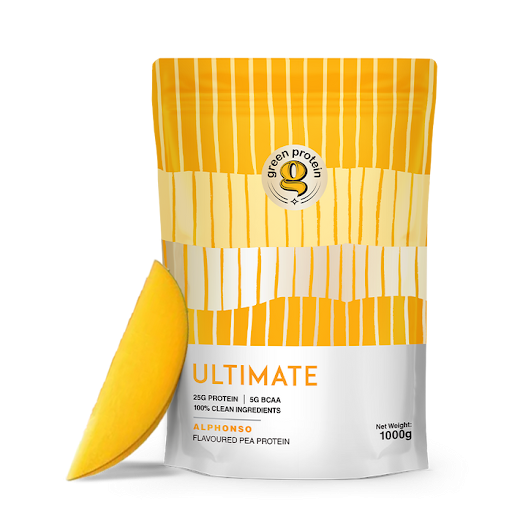As the plant-based diet trend continues to grow, more and more people are turning to plant-based protein powders to meet their nutritional needs. Whether you're a dedicated vegan, looking to reduce your environmental footprint, or simply seeking healthier dietary options, finding the right plant-based protein powder can be a game-changer. However, with the plethora of options available, it can be challenging to know which one is right for you. Here are some top tips to help you choose the best plant-based protein powder for your needs.
Identify Your Protein Needs
The first step in selecting the safest protein powder in India is understanding your protein requirements. Protein needs vary based on factors such as age, weight, activity level, and fitness goals. For example, athletes and those engaging in regular, intense workouts typically need more protein than someone with a sedentary lifestyle. On average, adult women need about 46 grams of protein per day, while men require around 56 grams. However, these needs can increase based on your specific health and fitness goals. Knowing your protein needs will help you choose a powder with the right protein content per serving.
Consider the Source of Protein
Plant-based protein powders come from a variety of sources, each with its own benefits and potential drawbacks. Common sources include:
-
Pea Protein: Rich in essential amino acids and easy to digest, pea protein is a popular choice. It's hypoallergenic, making it suitable for those with food sensitivities.
-
Hemp Protein: Hemp protein contains omega-3 and omega-6 fatty acids and is also high in fibre. It's a great choice for overall health and wellness.
-
Brown Rice Protein: Although it’s not a complete protein (lacking some essential amino acids), it’s easily digestible and often combined with other protein sources to make a complete profile.
-
Soy Protein: A complete protein with all essential amino acids, soy protein is highly effective but can be allergenic for some people. There are also concerns about phytoestrogens and GMO content.
-
Mixed Plant Proteins: Many protein powders combine different plant sources to provide a complete amino acid profile. This can help ensure a well-rounded intake of essential nutrients.
Check for Added Ingredients
When choosing a plant-based protein powder, it's important to look at the ingredient list. Some powders contain additives, sweeteners, artificial flavours, and fillers that may not align with your health goals. Here are a few things to consider:
-
Sweeteners: Look for natural sweeteners like stevia or monk fruit instead of artificial sweeteners like aspartame or sucralose.
-
Fillers and Additives: Avoid powders with unnecessary fillers, artificial colours, and preservatives. The fewer the ingredients, the better.
-
Allergens: If you have any food allergies or intolerances, check for potential allergens like gluten, soy, or nuts.
Evaluate the Protein Content and Serving Size
Not all protein powders are created equal when it comes to protein content. Check the label to see how much protein is in each serving and compare it to your daily protein needs. A good protein powder should provide at least 15-20 grams of protein per serving. Also, pay attention to the serving size – some powders may require larger servings to meet your protein needs, which can affect the overall cost and how quickly you go through the product.
Consider Digestibility and Absorption
Some plant-based protein powders are easier to digest and absorb than others. For example, pea protein and hemp protein are generally well-tolerated and easy on the digestive system. On the other hand, some people may experience bloating or digestive discomfort with soy or brown rice protein. Look for powders that include digestive enzymes or probiotics to aid in digestion and improve nutrient absorption.
Taste and Texture
The taste and texture of a protein powder can significantly impact your overall experience and willingness to use it consistently. Some plant-based protein powders have a gritty texture or an earthy taste that may not be appealing to everyone. Reading reviews and trying sample sizes can help you find a product that you enjoy. You can also blend protein powders with fruits, vegetables, and other ingredients to enhance the flavour and texture.
Price and Value
While price shouldn't be the sole factor in your decision, it's important to consider your budget. Higher-priced protein powders often reflect higher-quality ingredients and better manufacturing processes. However, there are also affordable options that provide good-quality protein without breaking the bank. Compare prices and consider the cost per serving to determine the best value for your needs.
Conclusion
Choosing the right plant-based protein powder can significantly enhance your diet and support your health and fitness goals. By understanding your protein needs, evaluating the source and quality of the protein, and considering factors like taste, digestibility, and price, you can find a protein powder that fits your lifestyle. Remember to check for added ingredients to ensure you're making a choice that aligns with your values and health goals. With these tips in mind, you'll be well on your way to finding the perfect plant-based protein powder for your needs.



